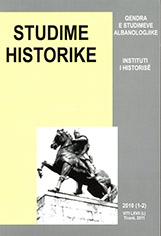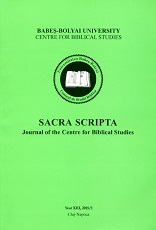
On the treatment of the albanian issue in Yugoslavia on a Balkan level (after 1945)
Rreth trajtimit të çështjes shqiptare në Jugosllavi në rrafshin ballkanik (pas vitit 1945)
Keywords: treatment of the albanian issue ; Yugoslavia on a Balkan level ; 1945 ; Albania; Albanian History;
The issue of the Albanians in Yugoslavia, undoubtedly part of the Albanian issue in its entirety, started with the drastic disintegration of the Albanian territories. By institutionalizing and intensifying the policy of ethnic cleansing in the annexed Albanian regions, Yugoslavia legitimated, between the two Wars, the struggles of the native Albanian population towards the obtainment by all means of their human and national rights. After World War II, the Yugoslavian political elite followed the policy of balance between the republics, in order to maintain the equilibrium of the Federation. In that scope, especially until the Brioni Plenum of 1966, and after 1981, the southern republics of the Federation, Serbia, Macedonia and Montenegro, were tolerated to maximally aggress the Albanian element. On the other hand, the position of the northern republics of Slovenia and Croatia would be resultant of the relations between the Serbian -Montenegrin and Croatian -Slovenian alignments. However, for a long time, their interest on the Albanian issue was insufficient. It wasn't until the end of the 480s, when the dissolution of Yugoslavia started making surface, that the Albanian factor would be reevaluated and the issue would be considered seriously. During 1945 - 1948 Albania, which was under the Yugoslavian tutelage, despite being aware of the condition of the Albanians across the border, could not raise the issue of the Albanians in Yugoslavia. However, even the phase that followed 1948 left the official Tirana generally out of the game of an effective action that would defend the compatriots across the border. The rest of the Balkan countries, Greece, Bulgaria and Rumania, regardless of the tradition and the historical links, or the various relations with the Albanian Republic, neglected or remained silent for many years regarding the issue of the Albanians in Yugoslavia. The position kept by the Great Powers, or the western democracies was determined, during this period, by their regional geostrategic interests, which, during the last two decades generally favored the Albanians.
More...
